-853X543.jpg)
The Oscar Rosters 2022 - A Post Hoc Analysis
by Ronaan Roy March 30 2022, 12:00 am Estimated Reading Time: 34 mins, 12 secsA detailed, spoiler free analysis of Oscar nominees and winners, with commendations on why some won, and regrets on why some didn’t, by Ronaan Roy
Doing a quick statistical analysis, at 8 years of predicting who will win the Oscars, I’ve been right about 2/3rd of the time. One of them (Mark Rylance for Bridge of Spies) was a genuine error. But I am forced, with humility, to concede that the Academy was wrong the remaining 1/3rd of the time.
This year they have done better. I agree with them in all but 3 major categories. But first let us understand art. Picasso is more venerated than Klimt, yet more prints of Klimt have been sold than Picasso. By which we gather popularity is not the contest we’re playing in.
The reason why Picasso was lauded is that he breaks new ground. Does something not yet done by the arts community. We know that this doesn’t always work out. Beethoven was booed, Stravinsky was booed and though they were later lauded, there is no doubt that they broke new ground, and people only realized this later. Yet, Klimt is one of my favorite painters. He moves me. If I were voting with my heart, I’d vote for him.
Here’s where the Oscars diverged this year, from how they usually operate. A lot of voting was not done from a technical critical standpoint, but based on the heart.
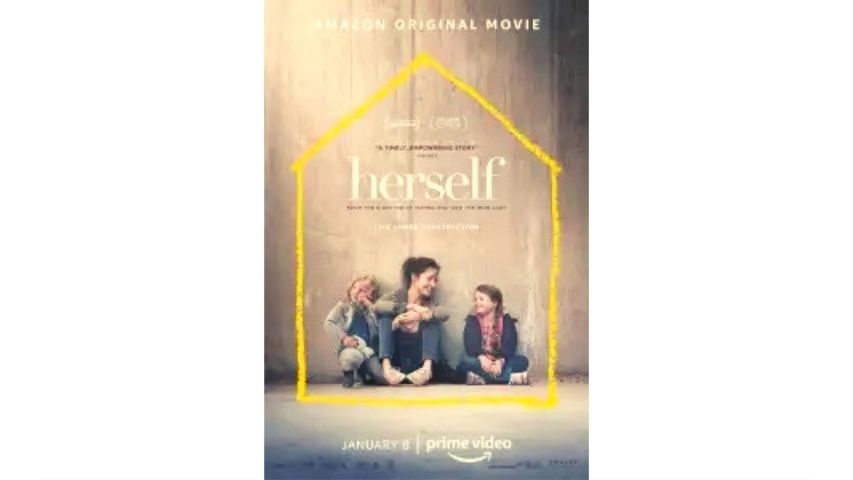
But enough theory lets begin.
Allow me to start with a list of films that were tragically overlooked. I haven’t been as rampant in my movie watching as I should have been (I didn’t get around to watching Annette). Not really sure why Herself was neither in last year’s nominations, nor this year’s. Here, a woman, despite society and no funds, rebuilds her life, her family and her house by herself. Writer and star Claire Dunne has literally no film credits to her name, so she’s really building the film with her own hands, in much the same way she builds her family. Unlike the falsity of King Richard or the filminess of CODA, she feels like a real person in a real situation. It’s also interesting how her two daughters probably have a firm understanding of the situation, but allow their mother to act strong in front of them. In truth, they’re saving her life on several levels.
The same ‘which year should it be?’, question arises for an absolutely stand out film, Supernova. The impeccable Stanley Tucci and the sensitive Colin Firth play longtime lovers in this bittersweet, heart wrenching film that is easily one of the best films of the year. The two battle the fact that dementia is taking Stanley Tucci away from this powerfully loving relationship they have. They somehow manage to get you in on their lifelong jokes, even if you’re only exposed to it for the first time. Mr. Tucci brings a fierceness of intellectual prowess and uses wit to deny and confound any one who thinks he’s losing it. Meanwhile Mr. Firth, weary and worried, is managing adeptly in one scene and falling to pieces in another. The film asserts that love isn’t the first meeting at a bookstore; it is the prolonged period of taking care of one another. If I could figure out which year it should be in, they should definitely have made nominations for Best Director, Best Screenplay and Best Film in both this year and the last, and certainly won Best Actor and Supporting Actor if eligible this year.
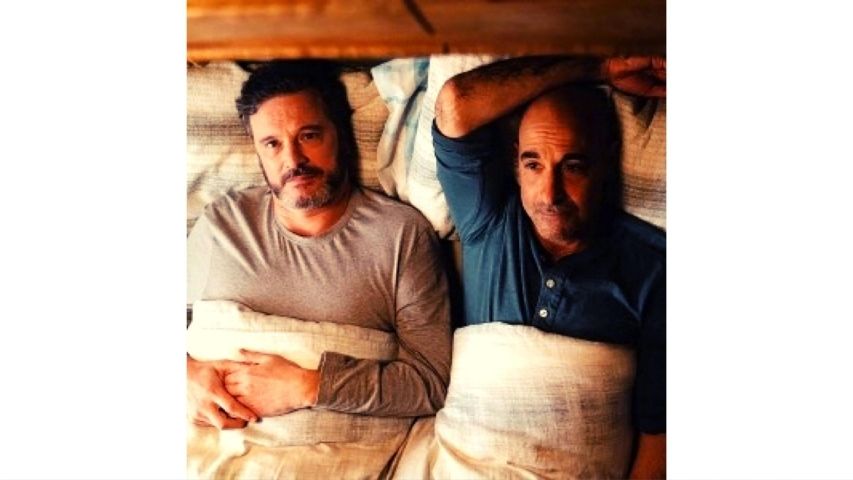
I also feel Green Knight should have featured in a few categories, and will be a film that is studied in the future. I trust that you’ve heard about this divisive, narratively jarring, but altogether brilliant piece of art, but I really must get moving to the films that were actually nominated. Oh, but just a sec. One last one, please if I could indulge upon your time…
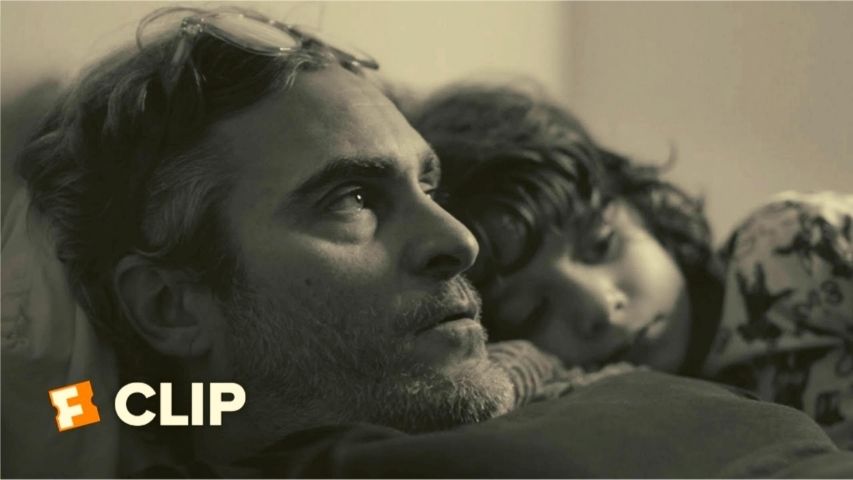
There’s a truly sensational, honest to innocence film that was made this year. It is precious, staggering and consequential and should have been nominated for a couple of categories and maybe (really truly) should have won Best Picture. C’mon C’mon probably flew under your radar, that’s not at all your fault, and that’s a crying shame.
In the film, the consistently stupendous Joaquin Phoenix is a radio journalist who interviews youngsters on their thoughts of the future. He observes their answers from the fringes, but has no children of his own. Suddenly, he finds himself coerced into taking care of his nephew for a few weeks, played with deftness by an absolute super-star in 9-year-old Woody Norman. No longer an observer, Joaquin finds himself the prime architect of the situations that move Woody from joy to melancholy (not your normal child emotion) in a microsecond. The film is an examination of the breadth and profundity of a child’s view on the world. It remarkably achieves this with neither judgment nor condescension. If you have ever seen things in a different way when a youngster has explained something to you, I urge you to watch this film. The wisdom of children has a flavor of its own.
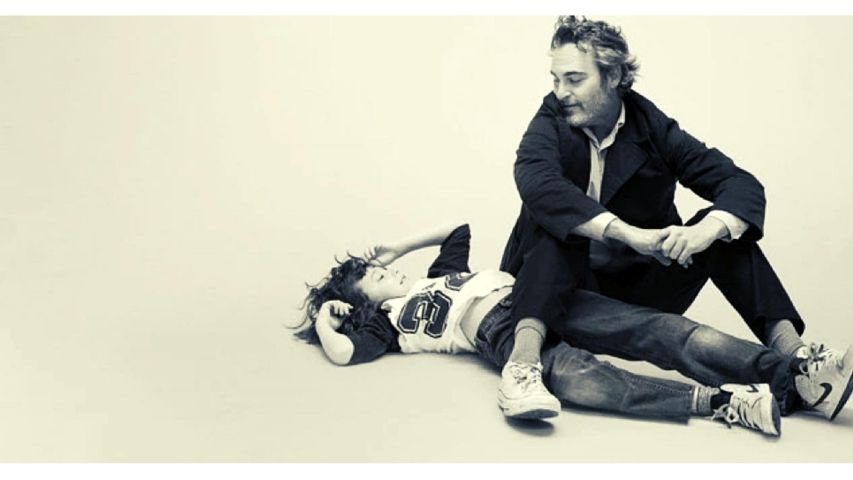
What was I talking about, oh yes, the Oscars. The films nominated for Best Film in reverse order of stellarness are:
Best Film: Tenth from the top, but by no stretch a slouch is King Richard. The slightly overlong sports-film suffers from the same problems as Dangal in that the entire credit of two women, beating all odds to become sports superstars is given to the patriarch of the family. I’m not sure why they took this entry point, when the perspective of two spunky girls drop-shutting their way to tennis royalty, despite their race and socio-economic position, with the backdrop of a looming stubborn father figure would have been riveting. Instead the film chooses to put the obdurate pater in the center stage and relegates the two daughters so distantly in the background that they barely have a personality beyond wanting to become champions (and even that was with the same conviction as any kid who wants to become a ballerina).
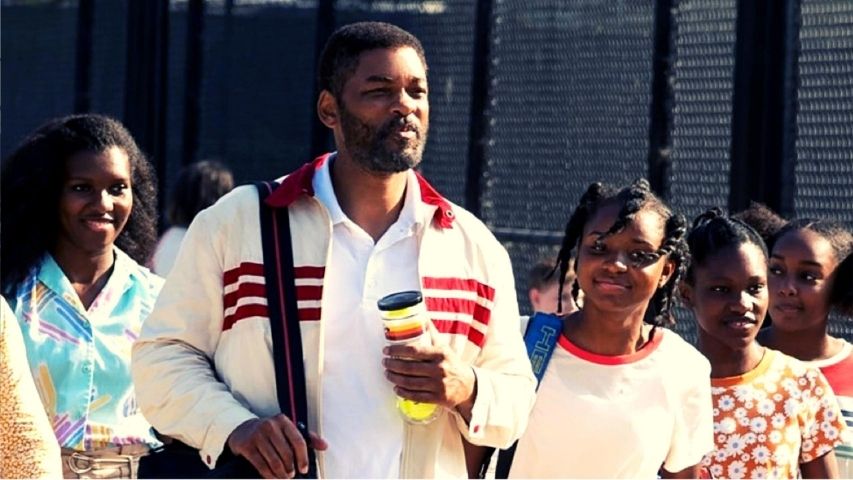
Ninth from the top is the divisive but delightful Don’t Look Up. I’m not a fan of Adam McKay, and I feel that he overstays his levity and his film would have been better with less Saturday Night satire and more ink-black comedy. Nonetheless I can recognize that it comes at a perfect time. Whatever it is a metaphor for, it needles climate change deniers, anti-vaxxers, anti-maskers, flat-earth fundamentalists and any other right wing proselyte that may be born from polarizing podcasts and media mogul run news networks. The zinger is, a few years ago we would have felt the actions portrayed in this film as unbelievably audacious, but given the last few years; our feeling is that the actions are pretty legit (and that’s terrifying).
I do feel Adam should have resisted the urge to cast a star studded ensemble and placed actors who were better at improvising comedy - a shout out to Mark Rylance, who does this the best of anyone on the screen. Tighter guardrails, and a descent away from flippancy into stark-raving gravitas, would have turned this film from a light comet comedy into a planet killer.
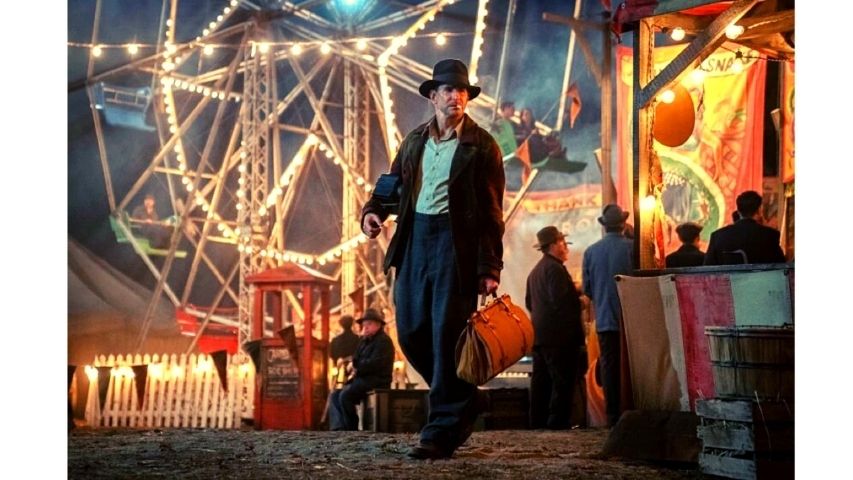
In eighth place we find Guillermo del Toro’s Nightmare Alley. The rambling plot is forgiven, partly because it follows some much older source material and partly because the carnival-esque backdrop and utter oddity has tremendous staying power. Unfortunately, the film tries to be too many films. And yes there is a consistency in acting showmanship from some absolutely towering actors (with the exception of Rooney Mara who isn’t over the top enough and gets left behind). And yes there is a real constancy in the vibrant cinematography and quirky mise-en-scene. But the plot veers off-course and then stumbles into predictability. While you should watch ‘Don’t Look Up’ because it’s a movie of our times, you can safely bypass the winking-but-empty three-penny allure of Nightmare Alley.
Seventh up is the coming of age film Licorice Pizza. I’m tempted to write the exact same critique about its rambling nature as Nightmare Alley. But Licorice Pizza has an honesty and earnestness that Nightmare Alley lacks. Its veridical creates the period, and all the surrounding nostalgia. The dynamic of the central duo is complex and interestingly problematic. Moments are - laugh out loud funny. The audience moves like a windscreen wiper between “what do they see in each other?” to “that’s what they see in each other”. One gets a breathless sense of a teenager’s energetic aimlessness. The 70s never knew the term YOLO, but they sure embodied it more than the current generation.
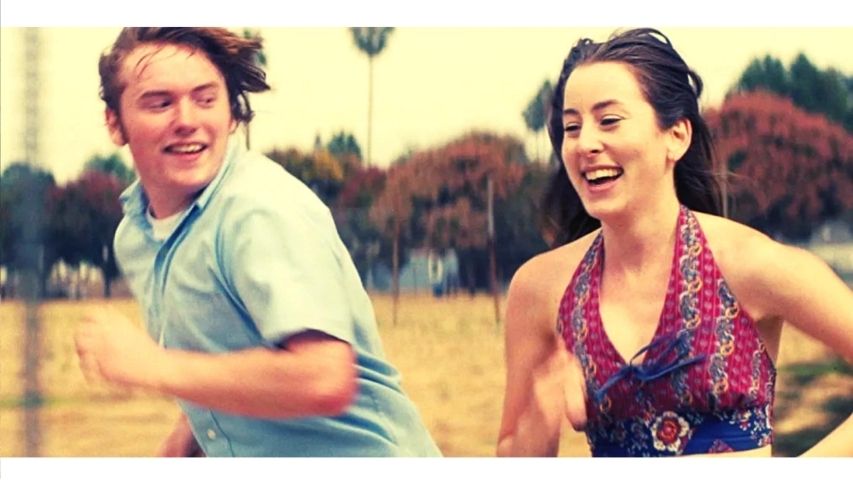
If you ask me, I’m surprised that a remake of West Side Story could make it as high as sixth on the list. It takes a very near perfect original film, identifies several problems and elevates it with pizzazz. For example, I did not realize that the song ‘Officer Krupke’ lacked in any way in the original, until I encountered Spielberg’s version. Spielberg lines up the absolute best talent. Dudamel conducts Bernstein’s score with above and beyond punch (watch the intro to the gym dance for evidence). John Williams is brought on as musical consultant. The casting (except for one) is nearly perfect. Spielberg excels at in-camera blocking more than anyone on this list. But he is no longer an actor’s director. Sadly, the film is bundled together with a vast cut-de-sac of lazy films milking the nostalgia train. I crave the ability to forget the original film and watch this as if I never knew the plot, to check if it matched the emotional heft of the first. I will probably watch this film several more times, which is not true of the others on this list. But alas I cannot, and alas a remake cannot win a Best Picture Oscar. Steven Spielberg should have funneled his considerable talents into directing In the Heights, or indeed any of 8 or 9 original musicals that came out this year.
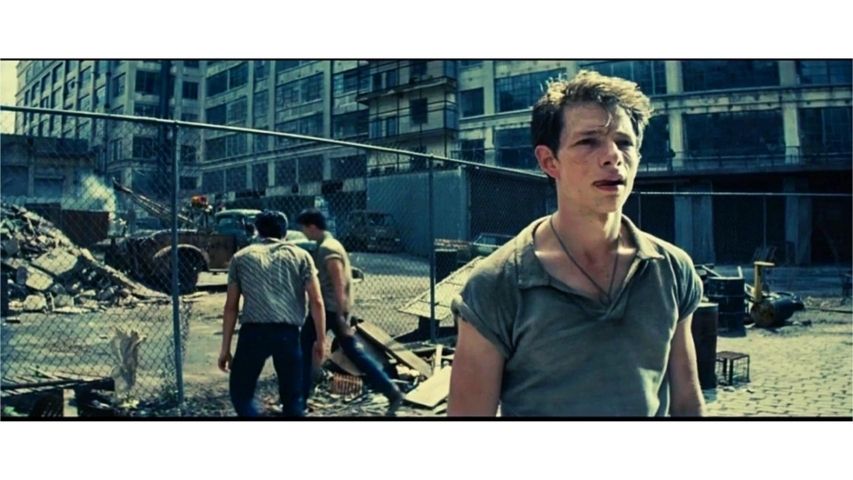
Fifth from the top is the allegedly unmakable Dune. Naturally a film, which does not conclude, being the first of a two parter, cannot win the accolade of Best Film. The film does have the best of this year in most departments, including all technical fields. It is not an actor’s movie, and it’s very possible that the sole reason Denis Villenue did not get nominated for, and consequently will not win Best Director is because he cast Zendaya’s accent next to Javier Bardem’s and asked us to believe they’re both from a insular clan with no contact with the outside. And though visionary, it’s not as visionary as Jodorowsky’s Dune might have been. It is a fully realized world, packed with lushness of camerawork and sumptuousness of sound design. It is a meal that deserves all the Michelin stars that one can give it. I will however call you back to Mad Max Fury Road. That was a film that was inspired, electric, and had the socio-political commentary that oddly Dune chooses to avoid (though it exists in the source material). This was a film that had all the best departments fully locked, playing together, but lacked that wisp of magic.
Fourth up comes the heartwarming CODA. Yes, I know what you’ll say, Ronaan, don’t you realize this actually won the Oscar for best picture? I’d argue that this won because it was probably fourth from the top in most people’s lists, rather than first in anyone’s list. One of the oddities of the Best Picture voting system is that it creates these paradoxes. And while it will never be anyone’s favorite film of the year, it is also unliked the least.
The base-level premise is quite unsophisticated, almost robbed of the opportunity for nuance - the kind of Young Adult story that you would gloss over in a bookstore. If you need to bring that to film though, a child of deaf adults (CODA) who wants to take up singing, it can make for some gladsome stuff. I have to give props to Oscar winner Marlee Matlin who insisted that deaf actors play all the other deaf roles. She unfortunately miscast herself, not really believable as fisherman’s wife (too glamorous for my taste). It could be my own biases, but then again, her Oscar win was when she played a deaf janitor (without feeling in any way false). That film, Children of a Lesser God starring the late William Hurt and a 19-year-old Marlee Matlin is deep, rich and well worth your time.
Here too, people both deaf and hearing need to overcome their own mental hang-ups in order to change into better people. There are some poignant moments that I’ll speak about without spoiling later on in this blog.
So CODA wins best picture, and that’s a shame. It’s a shame because firstly, the film is a direct (though attributed) lift from an already competent, if a little tone-deaf film, La Familie Bélier, and secondly its sweetness and lightness lacks the heft to make it to this year’s big three. I would argue each deserved to win Best Picture more than CODA did.
Third from the top is another film from a child’s point of view, Belfast. Belfast does joy very well. Both the mother (Caitriona Balfe) and the boy (Jude Hill) are mesmerizing when they’re having fun. Since it draws from director Kenneth Branagh’s own childhood, it can get grounded in references such as Star Trek, or Raquel Welch erupting onto the silver screen, which also means you can think about exactly where you were when you first encountered these cultural markers of time - the dialogues are just okay, the jokes are intentionally lame. A little bit of the acting from the younger cast mates can be considered contrived. The older actors do a fab job, and manage to keep a consistent accent throughout the entire cast (which is not easy by any means). But unlike C’mon C’mon, it’s a reflection of concerns that adults imagine children have. Belfast has a child ask, “If his name is Thomas, how am I supposed to know if he’s Catholic or Protestant?” - from which we draw the deeper meaning to his innocence, there is no difference. But C’mon C’mon has thoughts like, “So my fear would be like loneliness, and like, “y’know just people not understanding you, even though they say they understand you. Because it feels like you have nobody”.
In the second quote, I feel the pain of a child really trying to express himself. And then I take his problem, and extend it to myself, and I feel exactly what that child is feeling. And I don’t feel like it was an adult writing dialogue for a child, without really understanding what a child thinks. I’m glad Belfast was made, but I don’t think it’s a film that will change anyone’s outlook on life. It’s also got too much happiness in it. Given that the world is watching refugees flooding out of Ukraine, the film’s concerns about being able to adapt, feels a little unwarranted compared to the plight of immigrants elsewhere.
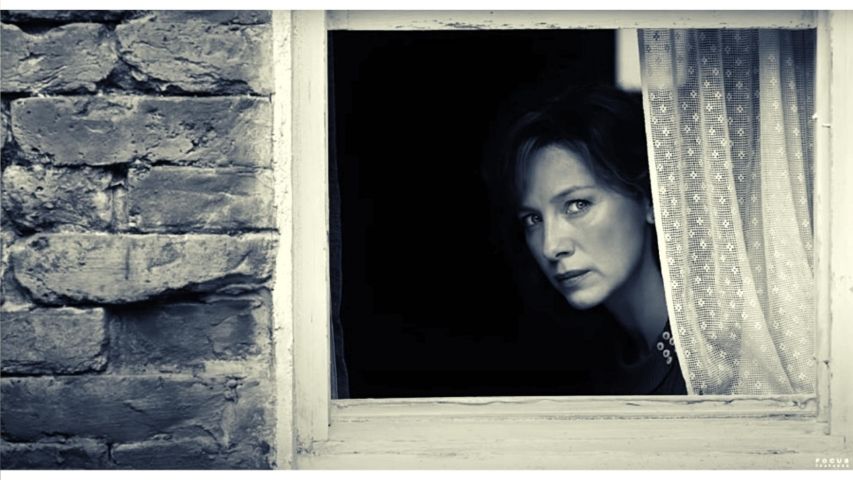
Second up is Power of the Dog. After a taut set up, it somehow loses its sharp pace in the second half. And in the second half there are two aspects of ambiguity that may lose an audience. This will be tricky to talk about without spoiling anything. The first aspect of ambiguity is about a certain character’s sexuality. I would have been fine if it was intentionally ambiguous, but it seems from the cast interviews that it was supposed to be crystal clear.
The second aspect is an aspect that is absolutely central to the finale of the film. In an ideal film the moment the penny drops, it should drop for the entire audience. The risk is you must be subtle about it, otherwise the audience might feel bludgeoned in the face with the plot. For a master class of how to do this right, look no further than the next film on this list, where as soon as you hear the rain on a rooftop, you know the information meant to be conveyed. In this film, the centrally key plot point is not driven home with such precision, and therefore you need two speaking characters to come in later and explain it to us. Again, trying not to be spoiler, there were 4 moments you could have picked up said key plot point: (1) A person steps up to a cow, (2) a man dips his hands in water, (3) a man wakes up in the morning, and finally if you did not get it from all that subtly, you have (4) two characters blatantly explaining it to the audience - necessary, perhaps but simply too imprecise for my taste.
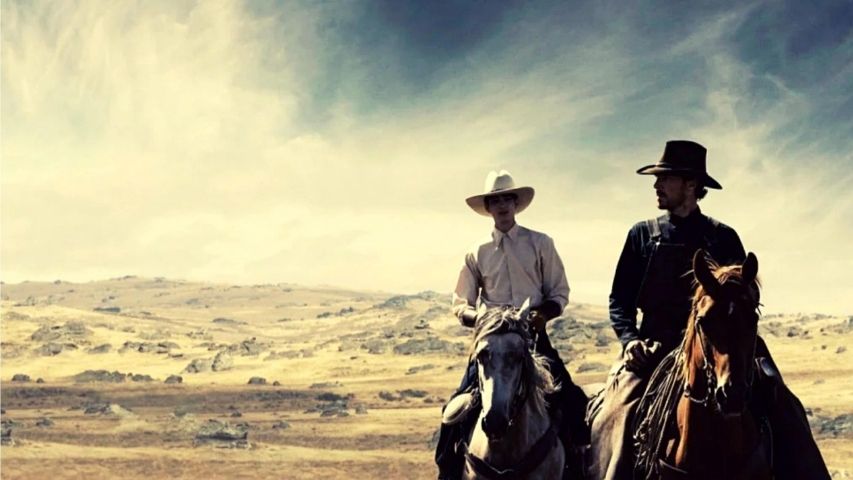
I will speak more about directing and acting in the respective categories. I do have admiration for many ingredients. Deep shadows over an overexposed and dusty topography. The emotive manifestations penetrate like a rusted razor. There is a consistent tone to the film’s cleverness and to the shifting power dynamics.
If ever there was a time when we needed to take an empathetic eye to examine and understand toxic masculinity, it is today. I feel if there were a sounding board for the filmmakers who had both cleverness and influence, the film would have greatly benefited. Mind you Power of the Dog was the frontrunner to win the Oscar this year for a long time. I do feel it’s worthier than CODA, but it misfires compared to…
The writer Murakami is beloved and lauded because he’s uniquely Murakami. He tastes like a taste unique unto himself. He creates the ‘mood Murakami’ even in his short stories and his opus tales. His entry-point is so unique it transcends bad translations. His endings are very satisfying despite the fact that they are not any conventional ending that is studied. And so if I were told, a Murakami can be adapted into a film with the mood and taste intact, I would retort that I would need to see it to believe it.
I have seen. I believe.
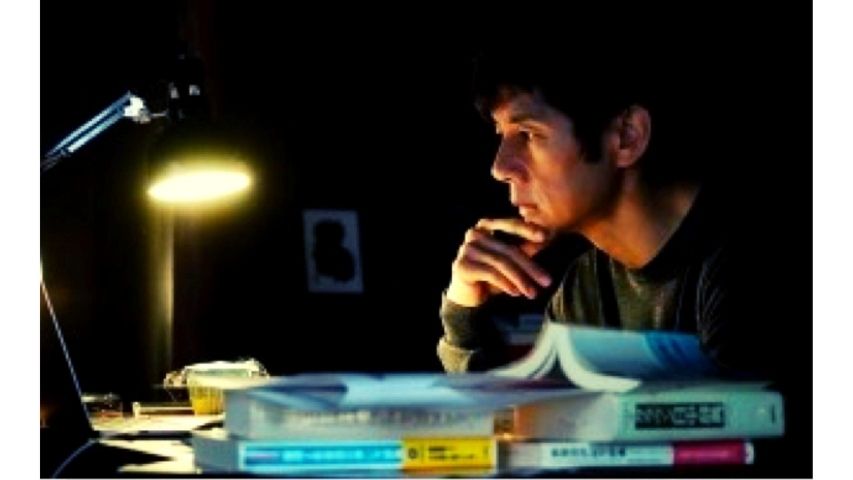
Drive my Car is oh-so-clever, and is patient with its cleverness. It is an assiduously unrushed film, and draws our interest in with a frequent splash of spice. Sometimes that spice is suavely shot nudity. At one point it is the entry of the credits (never have I felt this way when watching credits – I marvel at the information conveyed at their placement). Note also that Green Knight tries the same trick, but this makes me marvel, whereas in Green Knight I just smirked. Some movies try to have big swings in the graph of audience excitement. By carefully controlling the graph to a minimum, even small events in Drive My Car rivet our attention.
I won’t tell you the plot, because it would make no sense as a plot. Situations exist to expose the layers in a character, only to reveal more layers within. The ride concludes with the satisfaction of a good meal, but without any of the usual signposts that indicate it’s the end of the film. People are mysterious. You can only know a facet of them. You will gain more knowledge about them quite indirectly. You have no control over most things, and no control over what people choose to reveal to you about them. And thus it is that ‘Drive my Car’ feels exactly like a beautifully driven car ride. Like the protagonist says, you cannot feel the gears shifting.
Licorice Pizza, Nightmare Alley, and even the brisk under-2-hour-long Power of the Dog, could do with some trimming. Yet, I don’t think you could take an editing blade to ‘Drive my Car’ without losing something in the craft. Miraculously, just like a Murakami book, it takes you into the mind of the people, without ever relying on trite voice-over narration. I found myself wondering, how oh how are they going to give this a satisfying Murakami ending, and then they landed it. Look, if you’re looking for a short ride in a fast machine, this simply isn’t it. But if you’re willing to enter into a meditative, slow burn, densely contained novel of a film, this is the one for you.
I think it should have won. It breaks narrative structure, and thus breaks the most new ground. I suppose that it’s slow pacing wasn’t for everyone. I hope that people watched all the films and then voted (I know that doesn’t always happen). Most people I know who have seen this film think it was very clever and much more deserving.
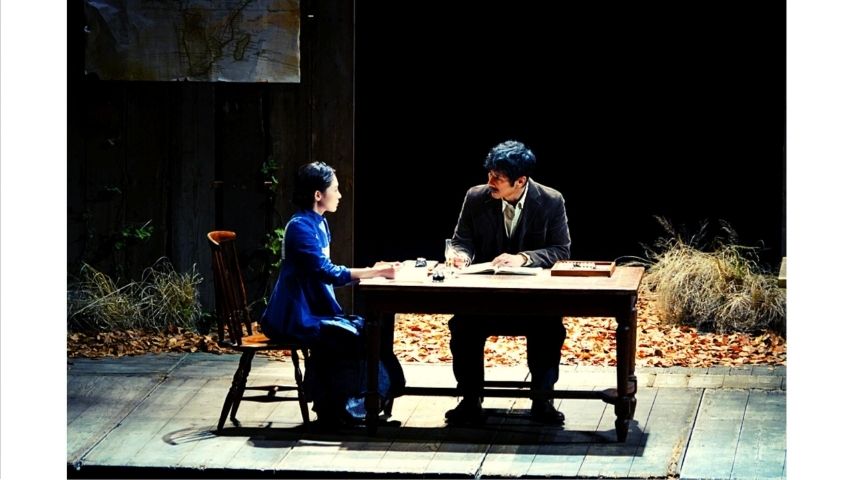
Best Actress: I’m quite perturbed that Lady Gaga wasn’t nominated for this category. She may not have won, but I think she would have given strong competition to the otherwise shoe-in Jessica Chastain. In the film, House of Gucci, Gaga (or is it Lady?) is able to out act Jeremy Irons, Al Pacino and arguably Adam Driver and Jared Leto too (at the very least she keeps pace with them). That is no small list of actors to utterly and triumphantly be better than. She loses herself in the character. While the film can be missed, she should have been among the names tonight.
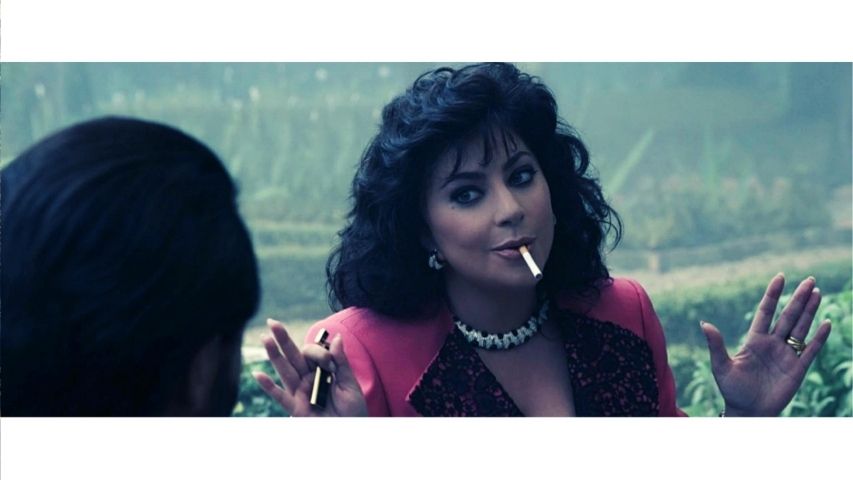
And how now does Frances McDormand not gain another entry for Lady Mac. She must be tired of entering. She had better performances in her career, so we will overlook the omission. The other name that could have been here is Ridley Scott’s next heroine, Jodie Comer, in The Last Duel. I’m okay that her name isn’t here, but I think we should look out for her in the future.
The winner in this category is, of course, Jessica Chastain for The Eyes of Tammy Faye. For the reason why, let’s contrast her with Kristen Stewart for Spencer. Jessica has to span an age range and have a width of expression playing a real life person whose memory is within public consciousness. Meanwhile Kristen, is one note, during one Christmas, and is limited by her accent and the single emotion she is asked to portray in the film. Kristen did a good job for Kristen (in that she was able to maintain a British accent and keep her lips shut). That’s not good enough to beat the shrill, squeaky, naive, world-weary, big-hearted, small-minded Tammy played by Jessica, who, I’m pretty sure had a gold statue on her mind when she chose to produce this for herself.
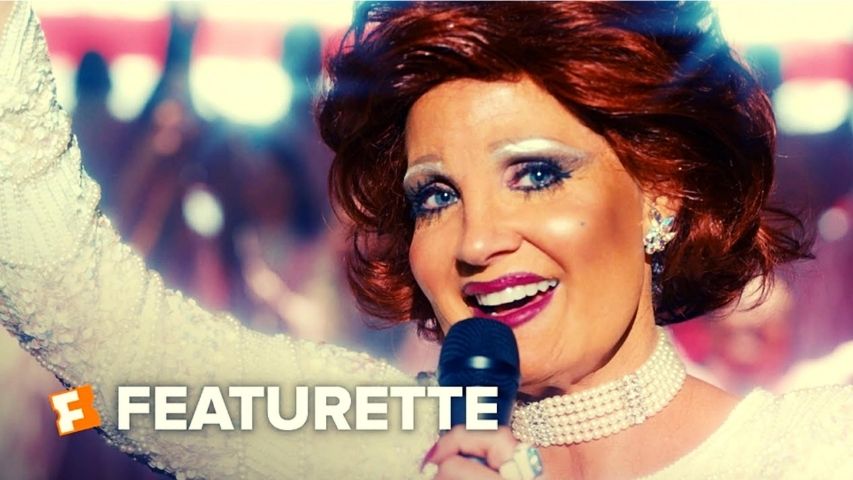
Out of interest; look at both actresses playing different heights. Spencer is lazy, trying to make up for Kristen’s height with low angle shots, (Kristen at 5’5″ has to play a 5’10” Diana). Jessica has to play short (she’s 5’5″ and plays a 5’0″ Tammy). They surround her by large furniture and taller actors, thus casting Andrew Garfield (who unlike Jessica cannot play across ages) and Vincent D’onofrio. But also, and I don’t know how to easily describe this, Jessica plays short. Her head is slightly angled up. She uses her (surprisingly) squat fingers to her advantage, and moves her arms ungracefully. Kristen makes no attempt at this, and though she can sometimes have Diana’s posture, she never bends to talk to her children, does not take advantage of the weighing scale scene, and does not play tall.
As a side note, it would have been interesting if Cate Blanchet hadn’t turned down the role of Lucille Ball in Being the Ricardos. But I don’t think Nicole Kidman did full justice. She does a commendable on-screen Lucille, but does not succeed playing off-screen Lucille. She gets this absolutely exquisite the-show-must-go-on scene written for her at the end of the film. Javier sets her up so beautifully. She has to deliver an expression of everything’s all right, while breaking underneath. There’s no breaking present at all. With that one misstep, the climax sinks away. So, yes, I wish Cate Blanchet had not turned down the role.
Best Actor: Personally I thought this is going to Andrew Garfield. He has to do a wide amount of things, very naturally, and in an accent that is not his own. Let’s just all come to terms that Andrew nails accents. I don’t think people would tell he’s not American. He sings. He plays a larger, less-slim man (using his shoulders, very clever). Most importantly he has to make people feel what is coming out of his mouth is entirely spontaneous. Very few people can do that, never mind in a musical, and Andrew does. I wish his sadness were sadder, but no doubt his joy is joyous. Watch him here, and marvel at his hair bobbing and shoulder acting.
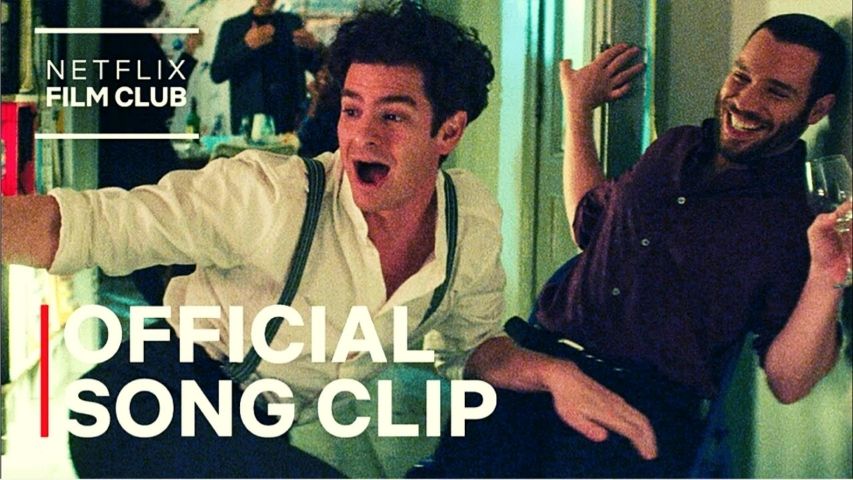
Denzel Washington is a thoroughly disappointing Macbeth. Everyone around him outclasses him. He either does not understand or cannot deliver Shakespeare. He speaks lines as Denzel, so we get no pathos, no immediacy, and no self-loathing. Compare the scene-smashing Patrick Stewart, or the heart-wrenching Ian McKellan, and there is no comparison. Ian manages to wrangle more meaning in the “and” between two utterances of the word “tomorrow” than Denzel in the entire soliloquy. Denzel actually ruins an otherwise formidable entry into the canon of the Scottish play.
Javier Bardem, I'll gloss over quickly, is a great actor. I’ll admire him for jumping into this role, and I will reflect on how vastly different this is from No Country for Old Men. But he’s not a Desi Arnez I remember, spry and foxy. He is bear-like as always and in command as always, and the two are different people.
Benedict is a tough one. He could have been so much more. Benedict’s key skill is actually playing with timing, in between words. He throws all this out to try a more American naturalist style of acting. He is not good at accents (look at Doctor Strange) and that limits his vocal range. When he raises his temper as Phil, he raises his voice to his full force (early scene in a restaurant). It’s sadly un-powerful. There is no threat, because we have seen him at his angriest (and it’s not that much to be frank).
I compare Idris Elba, playing Shere Khan, a spring that never uncoils, a threat that ever looms. Or I compare with Daniel Day Lewis in There Will Be Blood; the intensity of his full power is so immense, that it is devastating when he is broken. We don’t even need to go to such a caliber of acting. Clint Eastwood would have been better, Sam Elliot would have been better, and Josh Brolin would have been better. It would have been better if his alpha maleness was deep seated, and his bullying destructive, but casually flung. I love Benedict, and he should play every dragon you need to cast. He’s so good as Stephen Hawking, his mustache has more acting chops than facial hair requires in Atonement. But when you wanted to make a western, and an examination of toxic masculinity and needed an actor who could also move to soft emotion, you had dozens upon dozens to choose from.
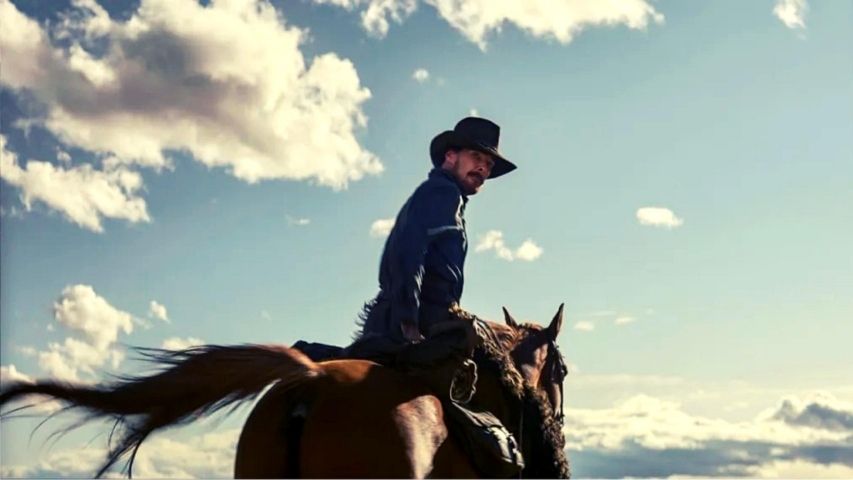
The role could have helped him a little too. It leaves him no room to develop. If in earnest, his character changed, genuinely moved; becoming a different person towards the end of the movie; the entire film would have been a smasher.
That leaves us with our one-punch man Will Smith. I disagree with several things about the Oscars, but I disagree the most with Will Smith winning for Best Acting. Will Smith, is simply Will Smith, albeit slouching and wheezing. He does not sound at all like the person he is portraying. Like Denzel, if you take his dialogue and substitute it with dialogue from In Pursuit of Happiness, the mood of the performance is nearly identical. He could have been wiry, cutting. He could have been an insurmountable lump of willpower. He could have been potent in his silence, but when his soft words are spoken, their power deafens. All these options were available to him, and he chose to be Will Smith.
Best Supporting Actor: I don’t believe children should be thrust to the center of adult competitions. But 9-year-old Woody Norman is amazing, instinctive, and spontaneous, and has almost as much screen time, and therefore weight to carry, as the lead. More than everything, though, he’s British. That means the entire time he’s on screen in C’mon C’mon he’s putting on an accent (and his accent game is flawless, expressive and unfeigned). I don’t know whom C’mon C’mon pissed off, but this young boy should have made waves this season. And he isn’t even nominated.
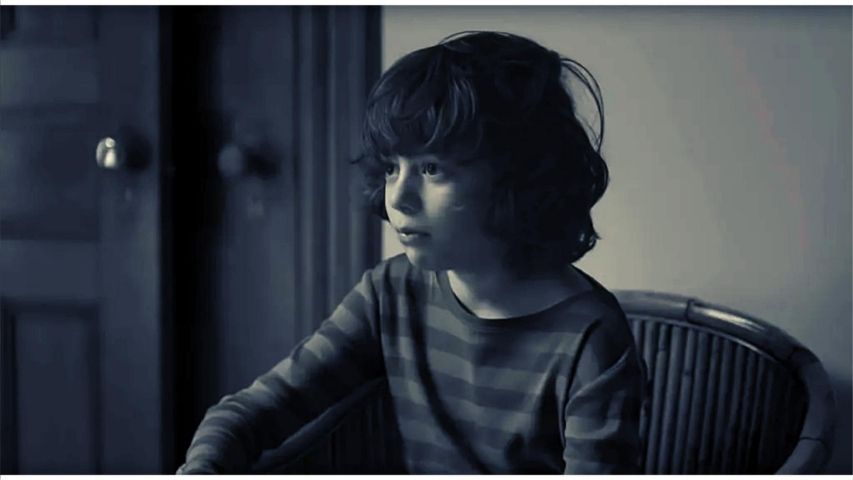
And so the award went to Troy Kotsur, the father in CODA. I’m quite happy with that. He’s perfect in the role, I’ve only seen him once before, as a reticent, clean-shaven, theatre attending spouse of Marlee Matlin. Here he’s hugely expressive, cuss-words brimming out of his fingertips and care emanating from his ebullient eyes. He has two or three scenes dedicated to ensuring he will win - one, thoroughly comic and crass and another searching and tender. He is loving - he’s boorish, he’s uneducated and he’s wise. Other characters in this film are mostly forgettable, but he stands alone (or at least among very few) to elevate it beyond an otherwise Hallmark production.
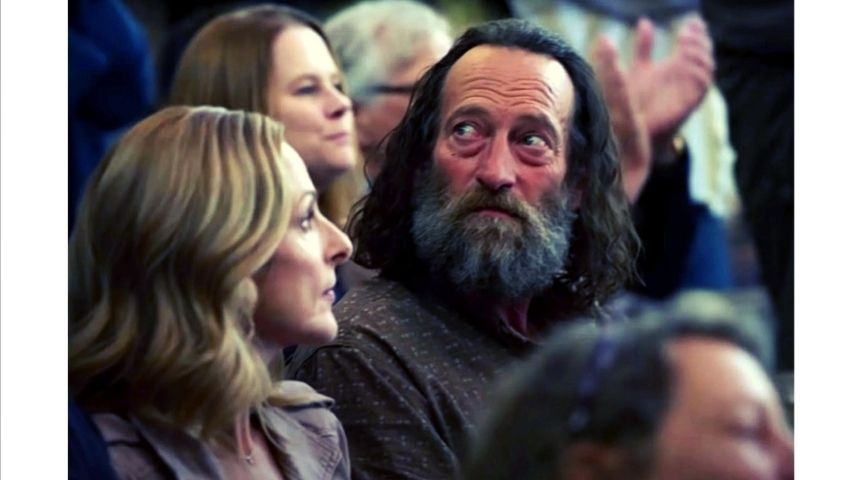
Best Supporting Actress: I think there’s was no doubt in anyone’s mind when triple threat Adriana DeBose won this award. But she should count herself lucky; there wasn’t any real competition this year. To give an instance, in the first half of the song “One of your own kind” she’s out acted both by Rachel Zegler and Dudamel’s triumphant conducting. If I were allowed to work with her, I would have taken time out to take her to a completely different mind space, and bring forth anger from a broken place. The same scene guaranteed the Oscar to Rita Moreno all those years ago.
Yet, the other nominees, all fabulous actresses, do not contend. Kirsten is not helped by the fact that her character stays in a similar mood state throughout (if her arc descended, she’d have a better chance). I will note that she does add meat to a character that could have been very damselly in the hands of a lesser actress though. Jesse, in The Lost Daughter, brings understanding and sympathy to a difficult-to-grapple-with phase of a person’s life. She’s a phenomenal talent but chooses not to play Olivia, when the need was to play a younger version of her. Judi Dench barely gets to flex her muscles and Aunjanue gets to deliver just one scene with any substance.
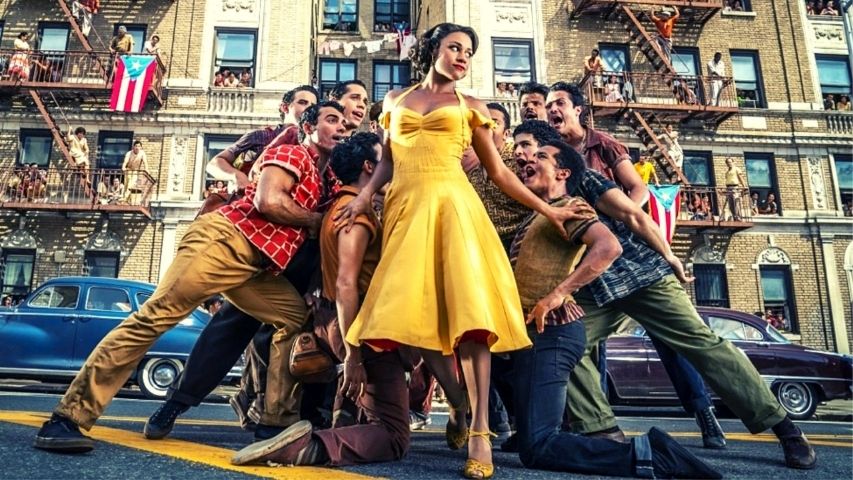
Adriana shouldn’t have won it though. It should have gone to phantasmagorical Kathryn Hunter, who plays the witch/witches in Tragedy of Macbeth as well as an old man. The witches are simply not human, and therefore Kathryn by transcending both gender and species should have taken flight with this Oscar. Why she was not even nominated is much more of a tragedy than the entire Denzel Washington-ruined film. Clip below spoils nothing, and though it may be a little confusing, is well worth your time.
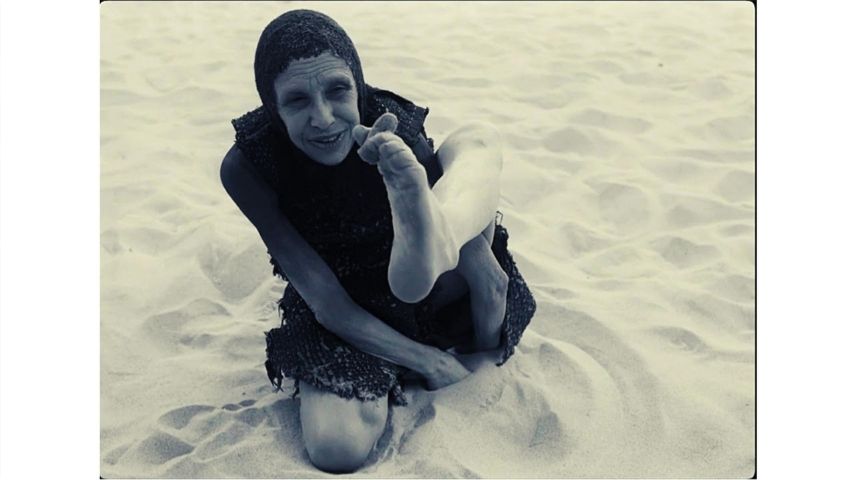
Best Director: Let it be known widely and loudly that Jane Campion is a phenomenal director, and if anyone wants proof of that they should watch The Piano. The Piano should have won a slew of Oscars, by any measure, except that it had the misfortune of being up against both In the Name of the Father and Schindler’s List. There, a much younger Jane is a discovery, and a force of emotion and gentleness of touch. The years in between have not added to a body of work worthy of such a first outing. I certainly celebrate the resurgent Jane’s newest venture. So though she won, and I have no objection, I will note that Paul Thomas Anderson and Steven Spielberg both of who have mounted prodigious experience in the interim outclass her. While she is still learning, these two know their textbook by heart (it’s now just a matter of when they choose to put the effort into it). Who should have won is Ryusuke Hamaguchi. His knowledge of pace, thoroughness of text, command over the human psyche is unmatched among his peers. But Jane has stellar cinematography on her side, a sensitive score, and acting that calls attention to them more. So Jane’s win over Ryusuke, is because directing is a coming together of various departments, and Jane’s costumes beat Ryusuke’s costumes.
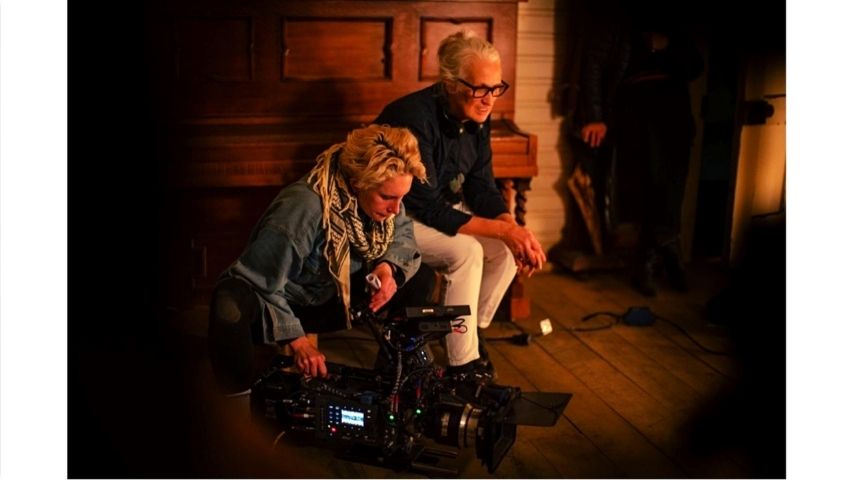
Other Categories: Rounding up a long blog, Best Adapted Screenplay should by all rights have gone to Ryusuke for Drive my Car, instead of CODA because the source material defies adaptation, which is simply not the case with any of the others (CODA, as previously noted, was adapted from another film. I hope Bollywood is not taking note). I will give a shout out to Dune, because a very good job was done. But they could not win Best Adapted Screenplay for the second half of the book, because we have no idea whether he’s going to get it right by then. I had thought ‘Don’t Look Up’ should’ve won Best Original Screenplay, because of a thoroughly weak category (and also it does capture the general zeitgeist of today, something no one else seems to be bothering to attempt).
A film that should have won Best Original Screenplay is the riveting ‘Mass’, which is just a conversation between four people, but one of the most difficult conversations imaginable. Instead Kenneth Branagh for Belfast won this category. I think this was an example of people voting with their hearts and not with their minds. I think a lot of the dialogue in Belfast is weak, especially the dialogue for the children. If you think about the ending, you are left neither sad nor unhappy. Imagine if Belfast left you feeling like Sophie’s Choice. The setting and the narrative certainly have the potential. Would it have hurt them so much to kill a small blonde girl? It would have elevated the script so much.
There’s no surprise that all the technical categories go to Dune, including Best Sound (though this could well have gone to West Side Story), Best Original Score (Hans Zimmer dances bagpipes around his competition), Best Production Design (even though Nightmare Alley had a decent shot), Best Visual Effects (Spidey’s entry upsets me, for some starchy green-screening) and Best Editing.
The editing of Dune is really quite clever. The prescience ability of Paul Atriedes is set up through an interesting edit, which sets up a grammar. That very grammar is used to fool us repeatedly when someone is using “the voice”, or a scene flash forwarded to is being recounted. Breaks of continuity keep us on our toes and are a great part of what makes this a less solid, more effervescent film. It elevates it from Summer Blockbuster to Art Film, and I should recognize it for that.
It entirely eludes me why The French Dispatch is not nominated for Best Production Design, Best Editing or Best Original Score. It has some of the absolutely most meticulous editing of any film this year, and according to one source, co-ordinates eye-blinking in the edit. I thought Best Cinematography would have gone to the Tragedy of Macbeth, very well deservedly taking it away from Dune, which is no short feat at all. The worst shot in Tragedy of Macbeth is more gorgeous than the worst shot in Dune. Both these shots are certainly worthy of becoming your next MacBook desktop wallpaper though. It’s sad that the Tragedy of Macbeth didn’t have enough love behind it for people to recognize this.
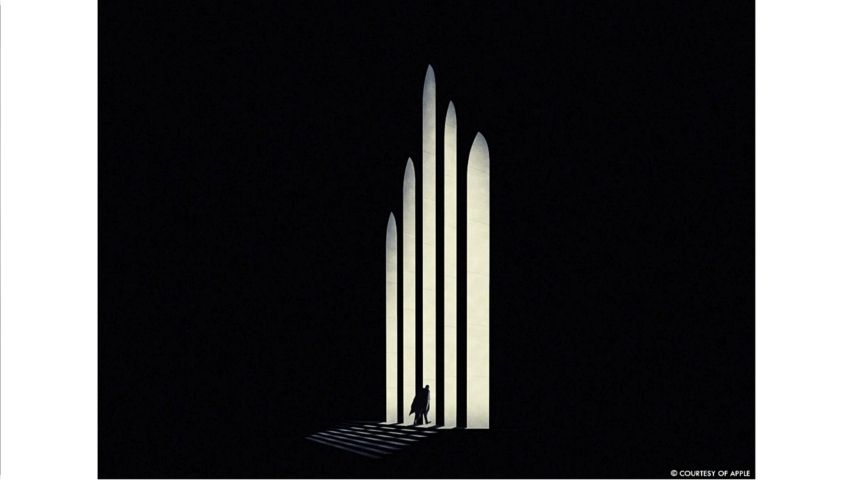
Not sure why Green Knight is not running for Best Editing, Best Original Score or Cinematography. I get that it’s not everyone’s film. I also get that it still may not have won against the Dune mother ship. That still does not stop it from having better editing and cinematography (definitely editing) than 3 of the other nominees. It’s a film where tense is more conceptual than a hard and fast rule, and it will wander its edits around the very notion of consequentialism. I don’t think it’s correct to say that these are flash forwards, or flashbacks, they are merely contemplations centered on choices. If that does not make any sense to you, then good, that’s exactly what the director of Green Knight intended. That and recognition for his trailblazing editing decisions.
No surprise that Best Makeup will go to the Eyes of Tammy Faye and not to Dune. I like Dune’s makeup. It creates worlds. But I think the makeup in the Eyes of Tammy Faye is more technical, and also more plot pivotal. It cannot be screwed up, and therefore that should get recognition.
I thought Best Costume might just go to Dune, winning over a very Cruella Deville (I was wrong). Why? Well, I don’t have a strong reason beyond that I see a lot more Pinterest that has designs close to Cruella’s and hardly anything close to Dune’s.
That Best Animated Feature went to Encanto is no surprise. It’s not that deserving, it’s just because of the super large Disney/Pixar voting block. The plot is all right, if a little confusing/convenient. There are farrr too many characters, and not much reason having so many. The only thing that makes it fantastical and magical is Lin Manuel Miranda’s stellar song-writing (lyric writing). He even uses it to fix some of the structural problems of the film.
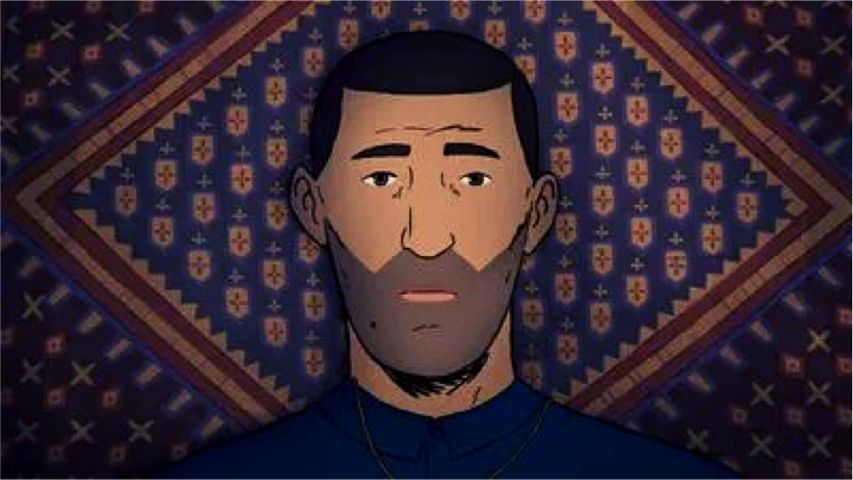
But for a few bum notes, this might have been the year a non-Disney film won it. The inspired animated documentary Flee allows us to get past the constraints of ‘filming’ or ‘recreating’ and can make the present and the past as real as one another, because it can do it through art. The further back the memory, the hazier the art becomes. It needed a more mature director, who knew more about craft. Still, I’m happy the odd couple of Riz Ahmed and Nikolaj Coster Waldau chose to produce the film and bring it to us. But for a filmmaker who knew how to access emotion, and a little global timing on the side of Putin, this could well have been Best Animated Feature.
That’s it for this year. Share your own thoughts, comments, hostility or admiration, as you see fit. If you want to revisit previous years you’re welcome to go to my blog below.




-173X130.jpg)

-173X130.jpg)
-173X130.jpg)
-173X130.jpg)
-173X130.jpg)
-173X130.jpg)
-173X130.jpg)